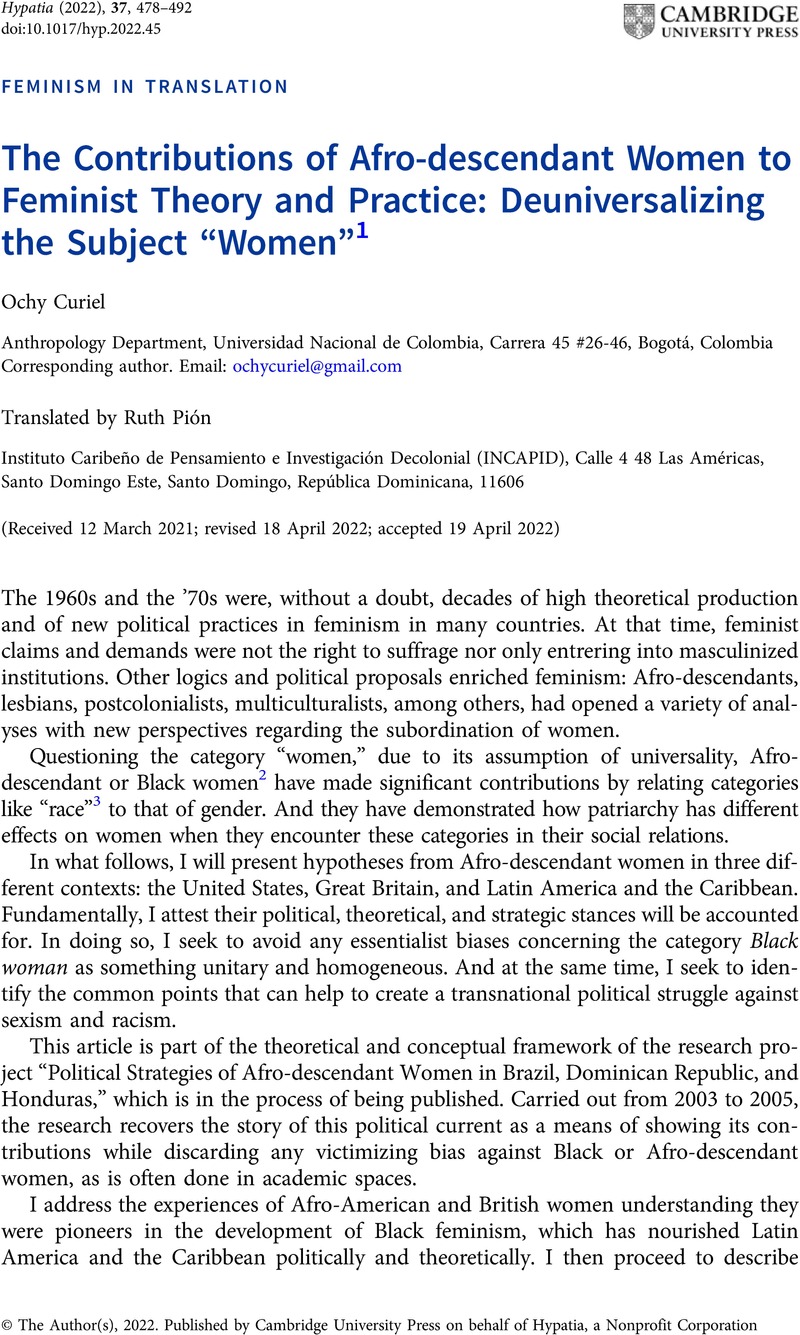Crossref Citations
This article has been cited by the following publications. This list is generated based on data provided by Crossref.
Sowards, Stacey K.
2023.
The (Under)Commons across the Américas: Connecting Spaces for Fugitivity and Futurity.
Rhetoric Society Quarterly,
Vol. 53,
Issue. 3,
p.
301.
Martínez Andrade, Luis
2023.
Aportes del pensamiento latinoamericano en la descolonización del saber.
Revista de Filosofia Aurora,
Vol. 35,
Issue. ,
Boudewijn, Inge A. M.
Bone, Juana C. Francis
Jenkins, Katy
and
Zaragocin, Sofia
2024.
Afro-Ecuadorian Women, Territory and Natural Resource Extraction in Esmeraldas, Ecuador.
Progress in Development Studies,
Vol. 24,
Issue. 4,
p.
321.



